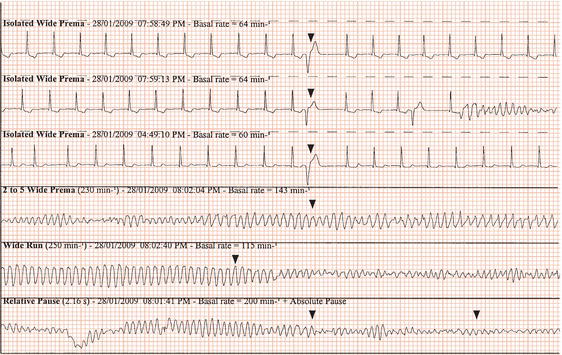Sudden death due to cardiac disease is common. The annual incidence in the United Kingdom is estimated to be 100 000 and in the United States, 300 000 – i.e. in the order of 1–2 per thousand of the general population. The risk is higher in those with known heart disease, for example past myocardial infarction – especially those with poor left ventricular function. It is reported that recently there has been a modest decline in the rate of sudden cardiac death, presumably due to better coronary prevention measures.
Definition
Sudden cardiac death can be defined as unexpected death due to a cardiac cause occurring within 60 minutes of the onset of symptoms. Many sudden deaths are unwitnessed and few occur during ECG monitoring. Thus it cannot be assumed that sudden death is synonymous with arrhythmic death: there are other possible causes such as valvular and congenital heart diseases, cardiac tumours, electromechanical dissociation (EMD), cerebrovascular accident, pulmonary embolism and massive haemorrhage, e.g. from a ruptured aortic aneurysm. Furthermore, even a documented episode of ventricular fibrillation might be a terminal event resulting from a cardiovascular catastrophe such as massive myocardial infarction. Nevertheless, most sudden cardiac deaths are caused by an arrhythmia, usually ventricular tachycardia or fibrillation (Figure 20.1).
Figure 20.2 Continuous recording as monomorphic ventricular tachycardia deteriorates into ventricular fibrillation.

Causes of arrhythmic sudden death
Stay updated, free articles. Join our Telegram channel

Full access? Get Clinical Tree



